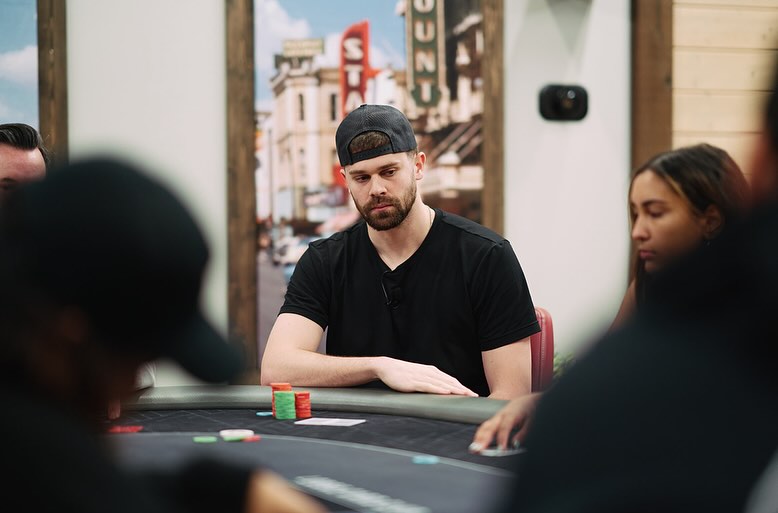Generation Z’s Growing Appetite for Poker
You can’t talk about the poker boom among Gen Z without mentioning how the COVID-19 pandemic transformed their lives. Lockdowns and restrictions kept young people at home, looking for new ways to have fun and stay connected. For many, this was their first real introduction to poker—usually online, through virtual games with family and friends. What started as a creative way to socialize in isolation often became a deeper passion. For countless Zoomers, poker shifted from a one-off activity into a genuine hobby, pulling them further into the poker universe and fueling an all-new generation of poker fans.
How TikTok Sparked the Poker Craze for Gen Z
During the pandemic, TikTok exploded in popularity—especially with younger audiences—and became a crucial engine for poker’s resurgence among Zoomers. The platform’s short-form videos let content creators whip up entertaining, creative poker clips, often sidestepping strict gambling regulations through humor or clever subtleties. Thanks to TikTok’s powerful algorithm, poker content reached millions of Gen Z users, stoking their curiosity and building a self-sustaining feedback loop of engagement. This viral effect didn’t just make poker trendy—it cemented the game as an embedded piece of Gen Z’s digital life.

Twitch: Poker’s Digital Epicenter
For Gen Z, livestreaming isn’t just entertainment—it’s where learning and community come together. Twitch, now the undisputed hub of live-streamed gaming, has become the beating heart of poker in the digital landscape. Since 2013, pioneers like Jason Sommerville, Jamie Staples, and Kevin Martin have inspired vibrant communities, drawing thousands of young viewers to the game. Their streams made poker feel more accessible and appealing to a new wave of players.
Recognizing the shift, major brands and tournaments like the EPT, WPT, and the WSOP began broadcasting their events on Twitch, tapping into this lively, growing audience. Today, Twitch is packed with hours of poker action and interactive communities—offering Gen Z not only entertainment but a space to learn, connect, and sharpen their skills.
Poker Stars on Social Media: Personality Drives Engagement
Poker success in the digital era isn’t just about how you play; it’s also about how you connect with an audience. Charisma in front of the camera is now just as vital as strategy. That’s how so-called "poker stars" are born—players and personalities who often win fans through their presence and storytelling even more than their results. There are two main styles: the experts and the newcomers.
Experts like Lex Veldhuis are revered for breaking down hands and explaining high-level strategy in a way viewers can actually follow—making the game both educational and entertaining. On the flip side, newcomers like Alexandra Botez bring candidness about their learning journey, inviting a wide audience to join in on the ride and see poker through fresh eyes. Both types help bridge the gap between poker and its growing fanbase, playing a key part in driving Gen Z’s interest and the game’s booming popularity (don’t miss our exclusive interview with Lex Veldhuis):
Generational Shifts in Poker: Different Priorities, New Culture
The way people approach poker varies drastically from one generation to the next, and those differences reflect shifting values and motivations. For Gen Z, poker is first and foremost about the experience, connecting with a community, and personal growth. It’s not just about winning money—fun, building relationships, and mastering new strategy are what draw them in. Thanks to online platforms and social media, Gen Z builds active poker communities and forges bonds with like-minded players; in many cases, these connections outweigh the cash prize.
Millennials—the generation just before Gen Z—tend to see poker as a blend of fun and serious competition, with an increasing focus on financial success. Meanwhile, Baby Boomers are more likely to approach poker as a traditional, closed-door pursuit—preferably in brick-and-mortar casinos or private games—where stability, control, and profit take center stage. This clear generational divide shows how poker is evolving from a classic game of chance to a complex social experience, tailor-made for the lifestyle of young players, even as older generations stick to a more conservative, results-oriented style.
This surge of youth enthusiasm presents a huge opportunity for the game. After the setbacks of Black Friday, when so much of the poker world was thrown into doubt, many wondered if a new wave of talent would ever flood the felt again. With Gen Z discovering poker through platforms like TikTok and Twitch, the game is once again surging with energy and relevance. This digital revolution is making poker more accessible, more exciting, and more global than ever for young players. Gen Z could be the driving force that revitalizes and extends poker’s legacy well into the future.




